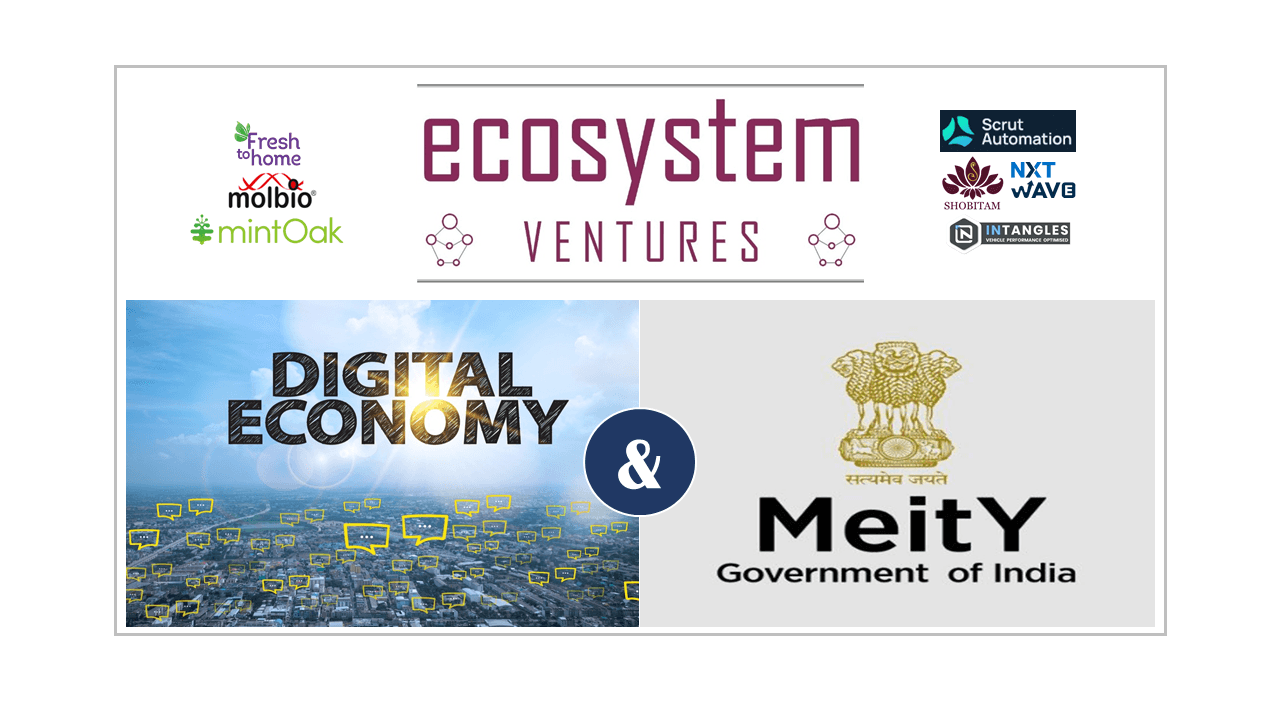Sizing up the digital economy
The Ministry of Electronics and Information Technology (MeitY) had an interesting news update in the past week.
As per news reports, MeitY has invited proposals to take up the task of estimating the size of India’s digital economy as well as the rankings and measurement of the share of the states in this area. The initiative is likely to be borne out of the government plans to showcase the success of India’s digital economy during the G20 summit to be held in New Delhi in September.
Interested participants will carry out research and statistical analysis on the digital economy and Digital India initiatives for helping in decision-making, setting up and maintaining a dashboard for the digital economy, and studying and analysis of any other subject or sector contributing to the digital economy.
Irrespective of the marketing utility of such a project at G20, it is likely to be beneficial to the startup ecosystem provided it is not conceived as a one off project, is designed robustly, and made easily accessible to key stakeholders like us.
One of the critical tasks in the startup ecosystem, for VCs and founders alike, is to ascertain the relevant size of the market startup is operating in. Commonly referred terms are Total addressable market (TAM), Servicable Adressable market (SAM) & servicable obtainable market (SOM). As a thumb rule, a TAM of over $1 Bn is considered attractive enough by the investors to bet on.
Often, these market sizing are not straightforward to compute. The complexity may arise due to lack of publicly available official datasets, expensive and inaccessible private market intelligence reports, or the available relevant data is old.
There can be two approaches to approximate the market size. Top-down or bottom-up approach. In the top down approach, we can begin from the high-level figure. E.g. GoI quoted in a 2019 report – “digital transformation could empower un-served and under-served segments and create $1 trillion in economic value in 2025, sustaining 60-65 million jobs. It adds that $390-500 billion of this $1 trillion economic value would come from digital applications in core economic and social sectors like agriculture, health, and education.” The $1 Tn figure is meaningless until we are not able to segment and break it down to our market of interest.
Second way would be to approximate the number of all potential consumers and multiply it by a spending amount, for the category the startup is operating in, to arrive at the market size. Ideally, top-down and bottom-up should not have much variation. But often they do not as they are based on assumptions.
Digital economy sizing initiative, if designed and executed robustly, may give us a reliable official source to base market-sizing calculation on. GoI and state governments have a massive cache of historical and latest data, in the form of statutory and ad hoc surveys, reports, and compliance. But that data hasn’t been collected, stored, and deployed from a digital economy perspective.
It would be good to have publicly available digital economy datasets as it may unlock new value for startups.
Startup Funding Summary
FreshToHome, Bengaluru-based fish and meat retailer, has raised $104 Mn in Series D funding from Amazon Smbhav Venture Fund, E20 Investment, Mount Judi Ventures and Dallah Albaraka – Read More
NxtWave, Hyderabad-based upskilling platform, has raised $33 Mn in Series A funding from Greater Pacific Capital and Orios Venture Partners – Read More
Mintoak Innovation, Mumbai-based fintech startup, has raised $20 Mn in Series A funding from PayPal Ventures, British International Investment, HDFC Bank and Pravega Ventures – Read More
Intangles, Pune-based digital twin solutions provider, has raised $10 Mn in Series A funding from Baring Private Equity Partners – Read More
Scrut Automation, Bengaluru-based risk compliance automation platform, has raised $8 Mn in a funding round from MassMutual Ventures, Lightspeed and Endiya Partners – Read More
M&A Snippets
Seattle-based ethnic wear brand Shobitam has acquired Bengaluru-based apparel brand House of Blouse for an undisclosed amount – Read More
Goa-based diagnostics chain Molbio Diagnostics has acquired Bengaluru-based medical equipment manufacturer Prognosys Medical Systems for an undisclosed amount – Read More


Comments are closed.